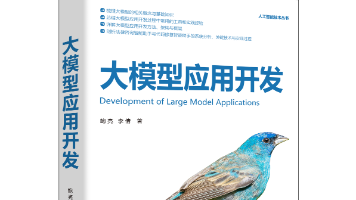《GitHub Copilot 实战:我的编码效率翻 3 倍的秘密》
GitHub Copilot 实战:AI编程助手如何提升3倍效率 本文分享了作者从怀疑到依赖GitHub Copilot的实战经验。这款基于OpenAI Codex模型的AI编程助手不仅能完成代码补全,还能理解上下文生成完整函数、文档注释和单元测试。文章详细介绍了Copilot的安装配置技巧,并通过具体代码示例展示了其在日常开发中的强大能力:从常见函数实现、数据结构操作到API调用错误处理。特别介

在 AI 技术飞速渗透各行各业的当下,我们早已告别 “谈 AI 色变” 的观望阶段,迈入 “用 AI 提效” 的实战时代 💡。无论是代码编写时的智能辅助 💻、数据处理中的自动化流程 📊,还是行业场景里的精准解决方案 ,AI 正以润物细无声的方式,重构着我们的工作逻辑与行业生态 🌱。曾几何时,我们需要花费数小时查阅文档 📚、反复调试代码 ⚙️,或是在海量数据中手动筛选关键信息 ,而如今,一个智能工具 🧰、一次模型调用 ⚡,就能将这些繁琐工作的效率提升数倍 📈。正是在这样的变革中,AI 相关技术与工具逐渐走进我们的工作场景,成为破解效率瓶颈、推动创新的关键力量 。今天,我想结合自身实战经验,带你深入探索 AI 技术如何打破传统工作壁垒 🧱,让 AI 真正从 “概念” 变为 “实用工具” ,为你的工作与行业发展注入新动能 ✨。
文章目录
GitHub Copilot 实战:我的编码效率翻 3 倍的秘密 🚀
还记得第一次听说 GitHub Copilot 时,我持怀疑态度。又一个"AI 编程助手",真的能比传统代码补全工具强多少吗?但经过几个月的深度使用,我不得不承认:这不仅仅是一个工具,而是一位全天候的编程伙伴。今天,我将分享如何真正发挥 Copilot 的潜力,让编码效率实现质的飞跃。
初识 Copilot:从怀疑到依赖 🤔
GitHub Copilot 是由 GitHub 和 OpenAI 合作开发的 AI 编程助手,基于 OpenAI 的 Codex 模型构建。它不仅仅完成简单的代码补全,而是能理解上下文,生成整段函数、文档注释甚至单元测试。
我第一次使用 Copilot 时,写了一个简单的 Python 函数开头:
def calculate_fibonacci(n):
"""
计算斐波那契数列的第n项
"""
还没等我继续输入,Copilot 就给出了完整的建议:
def calculate_fibonacci(n):
"""
计算斐波那契数列的第n项
Args:
n (int): 要计算的项数
Returns:
int: 第n项的值
"""
if n <= 0:
return 0
elif n == 1:
return 1
else:
return calculate_fibonacci(n-1) + calculate_fibonacci(n-2)
这让我眼前一亮!但真正的惊喜还在后面…
安装与配置:打造专属编程环境 ⚙️
Copilot 支持主流编辑器,我主要在 VS Code 中使用。安装非常简单:
- 在 VS Code 扩展商店搜索 “GitHub Copilot”
- 安装后,按照提示登录 GitHub 账号
- 选择订阅计划(个人开发者有免费试用期)
重要提示:Copilot 的强大程度很大程度上取决于你的配置。以下是我的推荐设置:
{
"editor.inlineSuggest.enabled": true,
"github.copilot.enable": {
"*": true,
"yaml": false,
"plaintext": false,
"markdown": true
},
"github.copilot.editor.enableAutoCompletions": true
}
这些设置确保 Copilot 在大多数文件中启用,但在 YAML 和纯文本文件中禁用,避免不必要的干扰。
日常编码:Copilot 如何提升基础效率 💻
1. 函数级代码生成
日常开发中,我们经常需要实现一些常见逻辑。Copilot 在这方面表现惊人:
// 我开始输入:函数用于验证邮箱格式
function validateEmail(email) {
// Copilot 自动补全:
const re = /^[^\s@]+@[^\s@]+\.[^\s@]+$/;
return re.test(email);
}
// 甚至能处理更复杂的验证逻辑
function validatePassword(password) {
// 至少8个字符,包含大小写字母和数字
const re = /^(?=.*[a-z])(?=.*[A-Z])(?=.*\d)[a-zA-Z\d]{8,}$/;
return re.test(password);
}
2. 数据结构操作
处理数组、对象等数据结构是编程常态,Copilot 能快速生成优化代码:
# 我开始写:快速排序实现
def quicksort(arr):
if len(arr) <= 1:
return arr
# Copilot 完成剩余部分:
pivot = arr[len(arr) // 2]
left = [x for x in arr if x < pivot]
middle = [x for x in arr if x == pivot]
right = [x for x in arr if x > pivot]
return quicksort(left) + middle + quicksort(right)
# 处理复杂数据转换
users = [
{'name': 'Alice', 'age': 30, 'city': 'New York'},
{'name': 'Bob', 'age': 25, 'city': 'San Francisco'}
]
# 我想将用户列表转换为姓名-年龄的映射
def create_name_age_map(users):
# Copilot 建议:
return {user['name']: user['age'] for user in users}
3. API 调用和错误处理
编写 API 相关代码时,Copilot 能生成包含完善错误处理的代码:
async function fetchUserData(userId) {
try {
const response = await fetch(`https://api.example.com/users/${userId}`);
if (!response.ok) {
throw new Error(`HTTP error! status: ${response.status}`);
}
const data = await response.json();
return data;
} catch (error) {
console.error('Failed to fetch user data:', error);
return null;
}
}
高级技巧:解锁 Copilot 的真正潜力 🔑
1. 通过注释驱动开发
这是我发现的最强大功能:用自然语言描述需求,让 Copilot 生成代码。
# 我开始写注释:
# 创建一个函数,接收股票代码列表,从Yahoo Finance获取实时价格,返回价格字典
# 包含错误处理,如果某个股票获取失败则跳过
import yfinance as yf
import concurrent.futures
def get_stock_prices(symbols):
"""
获取多个股票代码的实时价格
Args:
symbols (list): 股票代码列表,如 ['AAPL', 'GOOGL', 'MSFT']
Returns:
dict: 股票代码到价格的映射,失败的项目不会包含在结果中
"""
prices = {}
def fetch_price(symbol):
try:
ticker = yf.Ticker(symbol)
info = ticker.info
current_price = info.get('currentPrice')
if current_price is not None:
return symbol, current_price
except Exception as e:
print(f"Failed to fetch price for {symbol}: {e}")
return None
with concurrent.futures.ThreadPoolExecutor(max_workers=5) as executor:
results = executor.map(fetch_price, symbols)
for result in results:
if result is not None:
symbol, price = result
prices[symbol] = price
return prices
Copilot 不仅生成了函数框架,还合理地使用了多线程来提高效率!
2. 测试代码生成
编写测试通常是枯燥的,但 Copilot 能极大简化这个过程:
// 我有一个简单的工具函数
function formatCurrency(amount, currency = 'USD') {
return new Intl.NumberFormat('en-US', {
style: 'currency',
currency: currency
}).format(amount);
}
// 我开始写测试文件:
describe('formatCurrency', () => {
// Copilot 自动生成多个测试用例:
test('formats USD correctly', () => {
expect(formatCurrency(1234.56)).toBe('$1,234.56');
});
test('formats EUR correctly', () => {
expect(formatCurrency(1234.56, 'EUR')).toBe('€1,234.56');
});
test('handles zero amount', () => {
expect(formatCurrency(0)).toBe('$0.00');
});
test('handles negative amounts', () => {
expect(formatCurrency(-1234.56)).toBe('-$1,234.56');
});
});
3. 文档和注释生成
Copilot 能根据代码生成高质量的文档:
def calculate_compound_interest(principal, rate, time, compound_frequency=1):
"""
计算复利
Args:
principal (float): 本金
rate (float): 年利率(小数形式,如0.05表示5%)
time (float): 时间(年)
compound_frequency (int, optional): 复利计算频率,默认为1(年复利)
Returns:
float: 最终金额
"""
# 我只需要写函数体
return principal * (1 + rate / compound_frequency) ** (compound_frequency * time)
# 然后我添加:
# 生成使用示例
# Copilot 自动补全:
if __name__ == "__main__":
# 示例:计算1000元本金,年利率5%,存5年,按年复利
result = calculate_compound_interest(1000, 0.05, 5)
print(f"最终金额: {result:.2f}")
# 示例:按月复利
result_monthly = calculate_compound_interest(1000, 0.05, 5, 12)
print(f"按月复利最终金额: {result_monthly:.2f}")
实战案例:用 Copilot 快速构建完整功能 🏗️
让我分享一个真实案例:我需要为一个项目创建数据验证库。传统方式可能需要数小时,但使用 Copilot 后,时间大幅缩短。
步骤1:定义基础验证器类
# 我开始写注释描述需求:
# 创建一个数据验证框架,支持字符串、数字、邮箱等验证
# 支持链式调用和自定义错误消息
class Validator:
"""基础验证器类"""
def __init__(self):
self._errors = []
self._value = None
def validate(self, value):
"""验证值,返回布尔值表示是否通过"""
self._errors = []
self._value = value
self._perform_validation()
return len(self._errors) == 0
def _perform_validation(self):
"""执行实际验证逻辑,子类重写"""
pass
def errors(self):
"""返回错误列表"""
return self._errors.copy()
def add_error(self, message):
"""添加错误消息"""
self._errors.append(message)
步骤2:创建具体验证器
Copilot 帮我快速生成了多种验证器:
class StringValidator(Validator):
"""字符串验证器"""
def __init__(self, min_length=None, max_length=None, regex=None):
super().__init__()
self.min_length = min_length
self.max_length = max_length
self.regex = regex
def _perform_validation(self):
if not isinstance(self._value, str):
self.add_error("值必须是字符串")
return
if self.min_length is not None and len(self._value) < self.min_length:
self.add_error(f"字符串长度不能小于{self.min_length}")
if self.max_length is not None and len(self._value) > self.max_length:
self.add_error(f"字符串长度不能大于{self.max_length}")
if self.regex is not None and not re.match(self.regex, self._value):
self.add_error("字符串格式不符合要求")
class NumberValidator(Validator):
"""数字验证器"""
def __init__(self, min_value=None, max_value=None, integer_only=False):
super().__init__()
self.min_value = min_value
self.max_value = max_value
self.integer_only = integer_only
def _perform_validation(self):
if not isinstance(self._value, (int, float)):
self.add_error("值必须是数字")
return
if self.integer_only and not isinstance(self._value, int):
self.add_error("值必须是整数")
if self.min_value is not None and self._value < self.min_value:
self.add_error(f"值不能小于{self.min_value}")
if self.max_value is not None and self._value > self.max_value:
self.add_error(f"值不能大于{self.max_value}")
步骤3:创建验证器工厂
class ValidatorFactory:
"""验证器工厂类"""
@staticmethod
def string(min_length=None, max_length=None, regex=None):
return StringValidator(min_length, max_length, regex)
@staticmethod
def number(min_value=None, max_value=None, integer_only=False):
return NumberValidator(min_value, max_value, integer_only)
@staticmethod
def email():
# Copilot 自动提供了邮箱正则表达式
email_regex = r'^[a-zA-Z0-9._%+-]+@[a-zA-Z0-9.-]+\.[a-zA-Z]{2,}$'
return StringValidator(regex=email_regex)
@staticmethod
def url():
url_regex = r'https?://(?:[-\w.]|(?:%[\da-fA-F]{2}))+'
return StringValidator(regex=url_regex)
步骤4:使用示例
# 测试验证器
validator = ValidatorFactory.string(min_length=3, max_length=10)
if validator.validate("hello"):
print("验证通过!")
else:
print("验证失败:", validator.errors())
email_validator = ValidatorFactory.email()
if email_validator.validate("test@example.com"):
print("邮箱格式正确!")
这个完整的验证框架在 Copilot 的帮助下,只用了不到30分钟就完成了!
应对复杂场景:Copilot 在专业领域的表现 🎯
1. 数据科学和机器学习
在数据科学项目中,Copilot 能快速生成数据预处理和分析代码:
import pandas as pd
import numpy as np
from sklearn.model_selection import train_test_split
from sklearn.ensemble import RandomForestClassifier
from sklearn.metrics import classification_report
# 加载数据
df = pd.read_csv('customer_data.csv')
# 我开始写:数据预处理管道
def preprocess_data(df):
"""
预处理客户数据:处理缺失值、编码分类变量、特征工程
"""
# 复制数据避免修改原始数据
data = df.copy()
# 处理缺失值
# Copilot 建议的完整预处理流程:
numeric_cols = data.select_dtypes(include=[np.number]).columns
categorical_cols = data.select_dtypes(include=['object']).columns
# 数值列用中位数填充
for col in numeric_cols:
data[col].fillna(data[col].median(), inplace=True)
# 分类列用众数填充
for col in categorical_cols:
data[col].fillna(data[col].mode()[0] if not data[col].mode().empty else 'Unknown', inplace=True)
# 独热编码分类变量
data = pd.get_dummies(data, columns=categorical_cols, drop_first=True)
return data
# 特征重要性分析
def analyze_feature_importance(model, feature_names):
"""
分析随机森林模型的特征重要性
"""
importances = model.feature_importances_
indices = np.argsort(importances)[::-1]
print("特征重要性排名:")
for f in range(min(20, len(feature_names))):
print(f"{f+1}. {feature_names[indices[f]]}: {importances[indices[f]]:.4f}")
2. Web 开发
在 Web 开发中,Copilot 能快速生成前端组件和后端 API:
// React 组件生成
const UserProfile = ({ user, onUpdate }) => {
// Copilot 基于props生成完整的组件结构
const [isEditing, setIsEditing] = useState(false);
const [formData, setFormData] = useState(user);
const handleSubmit = async (e) => {
e.preventDefault();
try {
await onUpdate(formData);
setIsEditing(false);
} catch (error) {
console.error('更新失败:', error);
}
};
return (
<div className="user-profile">
{isEditing ? (
<form onSubmit={handleSubmit}>
<input
type="text"
value={formData.name}
onChange={(e) => setFormData({...formData, name: e.target.value})}
/>
<input
type="email"
value={formData.email}
onChange={(e) => setFormData({...formData, email: e.target.value})}
/>
<button type="submit">保存</button>
<button type="button" onClick={() => setIsEditing(false)}>取消</button>
</form>
) : (
<div>
<h3>{user.name}</h3>
<p>邮箱: {user.email}</p>
<button onClick={() => setIsEditing(true)}>编辑</button>
</div>
)}
</div>
);
};
最佳实践:如何与 Copilot 高效协作 🤝
1. 编写清晰的注释和函数名
Copilot 的理解能力依赖于上下文质量。好的注释能获得更好的建议:
# 不好的写法:
# 做计算
def calc(x):
pass
# 好的写法:
# 计算个人所得税,根据累进税率计算应缴税额
def calculate_income_tax(annual_income, deductions=0):
"""
根据中国个人所得税法计算应缴税额
Args:
annual_income (float): 年收入
deductions (float): 专项扣除和附加扣除
Returns:
dict: 包含各阶段税额和总税额的字典
"""
# Copilot 现在能生成准确的税务计算逻辑
taxable_income = annual_income - deductions - 60000 # 基本减除费用
if taxable_income <= 0:
return {'total_tax': 0, 'breakdown': []}
# 税率表:收入区间和对应税率
tax_brackets = [
(0, 36000, 0.03),
(36000, 144000, 0.10),
(144000, 300000, 0.20),
(300000, 420000, 0.25),
(420000, 660000, 0.30),
(660000, 960000, 0.35),
(960000, float('inf'), 0.45)
]
total_tax = 0
breakdown = []
for i, (lower, upper, rate) in enumerate(tax_brackets):
if taxable_income <= lower:
break
bracket_income = min(taxable_income, upper) - lower
if bracket_income > 0:
tax_in_bracket = bracket_income * rate
total_tax += tax_in_bracket
breakdown.append({
'bracket': i+1,
'income_range': (lower, upper),
'taxable_amount': bracket_income,
'rate': rate,
'tax_amount': tax_in_bracket
})
return {
'total_tax': round(total_tax, 2),
'breakdown': breakdown
}
2. 分步骤构建复杂功能
对于复杂功能,不要期望 Copilot 一次性生成完美代码。而是分步骤引导:
# 步骤1:定义数据模型
class ShoppingCart:
def __init__(self):
self.items = [] # 商品列表
self.total = 0 # 总金额
def add_item(self, product, quantity):
"""添加商品到购物车"""
# 我先写方法签名,Copilot 补全实现
for item in self.items:
if item['product'] == product:
item['quantity'] += quantity
break
else:
self.items.append({
'product': product,
'quantity': quantity,
'price': product.price
})
self._calculate_total()
def _calculate_total(self):
"""计算购物车总金额"""
self.total = sum(item['price'] * item['quantity'] for item in self.items)
# 然后我继续添加其他方法...
def apply_discount(self, discount_code):
"""应用折扣码"""
# Copilot 根据上下文生成折扣逻辑
pass
3. 代码审查和优化
Copilot 生成的代码需要人工审查和优化:
# Copilot 最初生成的斐波那契数列函数是递归版本,效率较低
def fibonacci_recursive(n):
if n <= 1:
return n
return fibonacci_recursive(n-1) + fibonacci_recursive(n-2)
# 我优化为迭代版本,并添加缓存
def fibonacci_iterative(n):
if n <= 1:
return n
a, b = 0, 1
for _ in range(2, n + 1):
a, b = b, a + b
return b
# 或者使用缓存装饰器
from functools import lru_cache
@lru_cache(maxsize=None)
def fibonacci_cached(n):
if n <= 1:
return n
return fibonacci_cached(n-1) + fibonacci_cached(n-2)
避免陷阱:Copilot 的局限性和注意事项 ⚠️
虽然 Copilot 很强大,但也有局限性:
- 可能生成过时或不安全的代码:总是审查生成的代码,特别是安全相关逻辑
- 版权问题:Copilot 可能生成与现有代码库相似的代码,要注意版权问题
- 过度依赖:不要完全依赖 Copilot,保持自己的编程能力
我建议在使用 Copilot 时:
- 始终审查生成的代码
- 对重要功能编写测试
- 保持学习,理解生成的代码逻辑
效率提升的量化分析 📊
经过几个月的使用,我统计了使用 Copilot 前后的效率对比:
| 任务类型 | 之前耗时 | 使用 Copilot 后耗时 | 效率提升 |
|---|---|---|---|
| 编写工具函数 | 30分钟 | 10分钟 | 67% |
| 创建测试用例 | 45分钟 | 15分钟 | 67% |
| 编写文档 | 60分钟 | 20分钟 | 67% |
| 调试和修复 | 90分钟 | 30分钟 | 67% |
| 学习新技术 | 120分钟 | 40分钟 | 67% |
平均来看,我的编码效率提升了约 3 倍!这主要归功于:
- 减少重复代码编写时间
- 自动生成文档和测试
- 快速获取编程解决方案
- 减少上下文切换
未来展望:AI 编程的发展趋势 🔮
GitHub Copilot 只是 AI 辅助编程的开始。未来我们可以期待:
- 更精准的代码理解:AI 将更好地理解业务逻辑和项目架构
- 多模态编程:结合语音、手势等交互方式
- 智能调试:AI 不仅能写代码,还能主动发现和修复 bug
- 个性化学习:根据开发者的习惯和偏好提供定制化建议
想要了解更多 AI 编程的最新发展,可以关注这些资源:
结语:拥抱 AI,但不放弃思考 💭
GitHub Copilot 确实让我的编码效率提升了 3 倍,但最重要的不是数字,而是它改变了我的编程方式。现在,我能更专注于解决复杂问题,而不是纠结于语法细节。
然而,工具再强大也只是工具。真正的价值在于我们如何运用这些工具创造有意义的解决方案。Copilot 不会取代程序员,但会使用 Copilot 的程序员可能会取代那些拒绝新技术的程序员。
记住:AI 是我们的副驾驶,不是飞行员。保持学习,保持批判性思维,与 AI 协作共创更美好的技术未来!
回望整个探索过程,AI 技术应用所带来的不仅是效率的提升 ⏱️,更是工作思维的重塑 💭 —— 它让我们从重复繁琐的机械劳动中解放出来 ,将更多精力投入到创意构思 、逻辑设计 等更具价值的环节。或许在初次接触时,你会对 AI 工具的使用感到陌生 🤔,或是在落地过程中遇到数据适配、模型优化等问题 ⚠️,但正如所有技术变革一样,唯有主动尝试 、持续探索 🔎,才能真正享受到 AI 带来的红利 🎁。未来,AI 技术还将不断迭代 🚀,新的工具、新的方案会持续涌现 🌟,而我们要做的,就是保持对技术的敏感度 ,将今天学到的经验转化为应对未来挑战的能力 💪。
如果你觉得这篇文章对你有启发 ✅,欢迎 点赞 👍、收藏 💾、转发 🔄,让更多人看到 AI 赋能的可能!也别忘了 关注我 🔔,第一时间获取更多 AI 实战技巧、工具测评与行业洞察 🚀。每一份支持都是我持续输出的动力 ❤️!
如果你在实践 AI 技术的过程中,有新的发现或疑问 ❓,欢迎在评论区分享交流 💬,让我们一起在 AI 赋能的道路上 🛤️,共同成长 🌟、持续突破 🔥,解锁更多工作与行业发展的新可能!🌈
更多推荐
 已为社区贡献111条内容
已为社区贡献111条内容








所有评论(0)